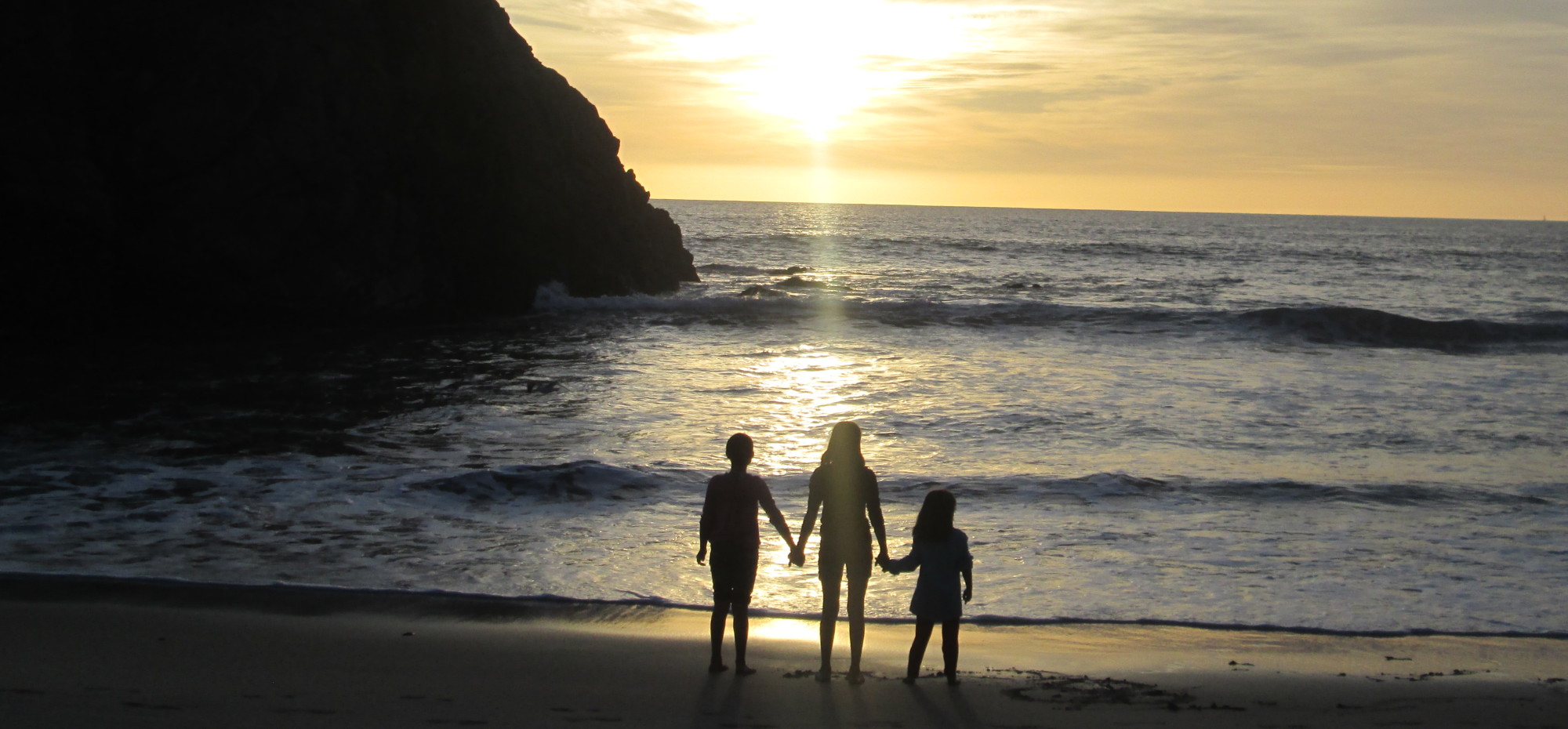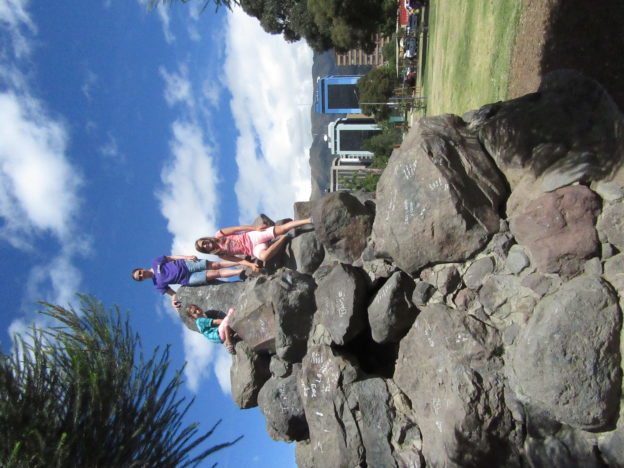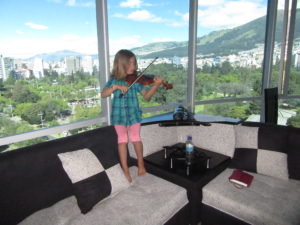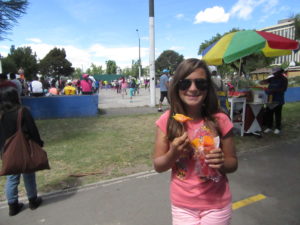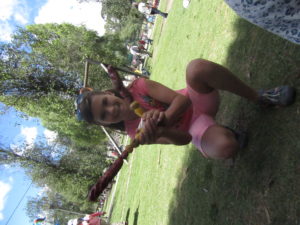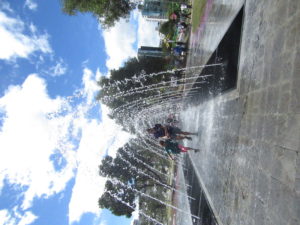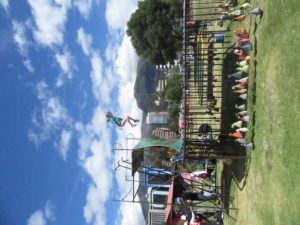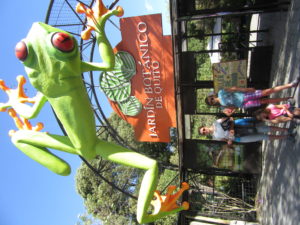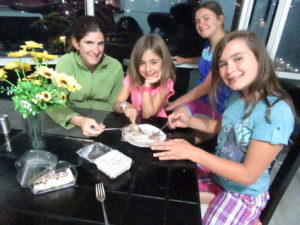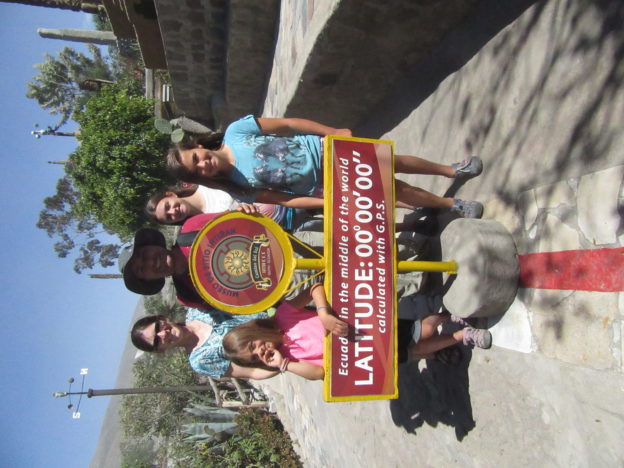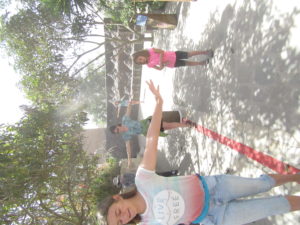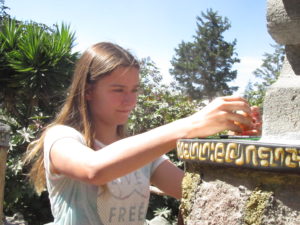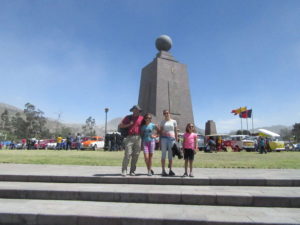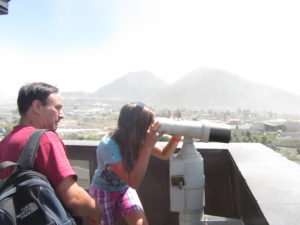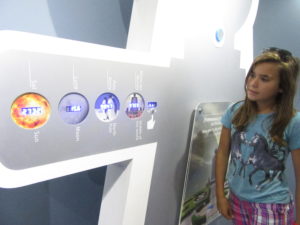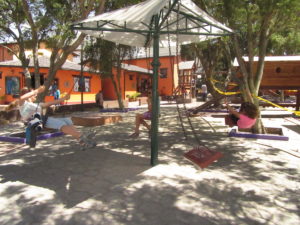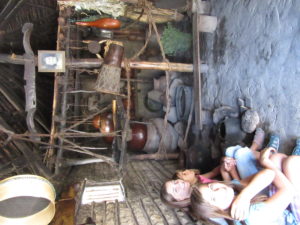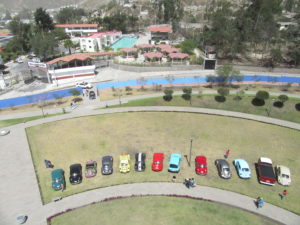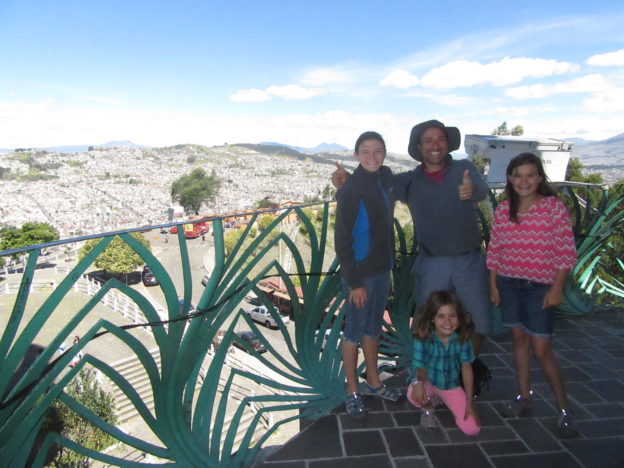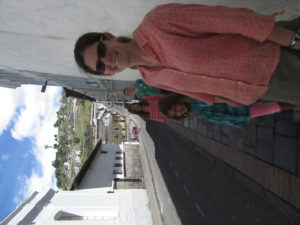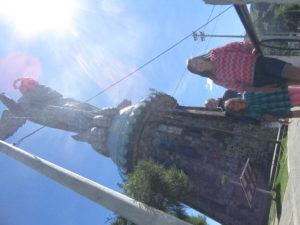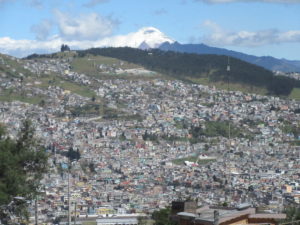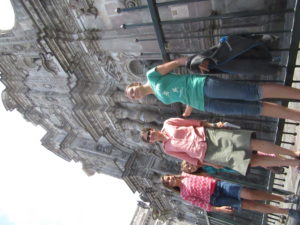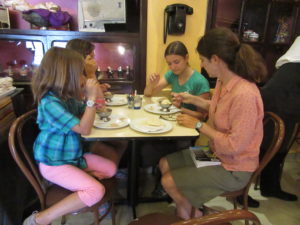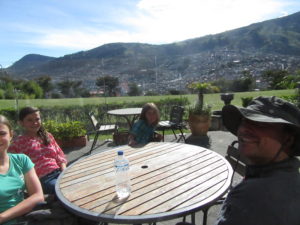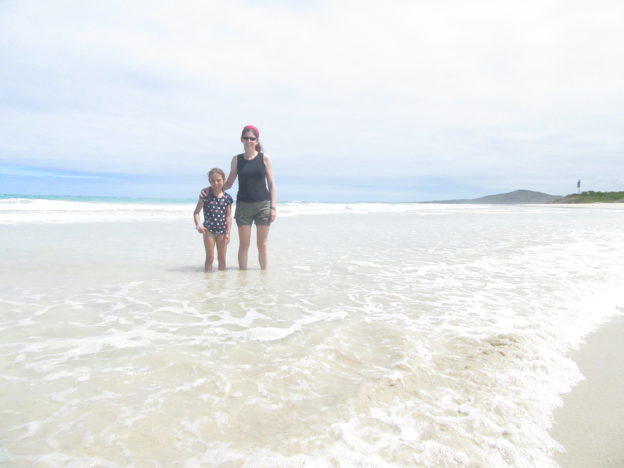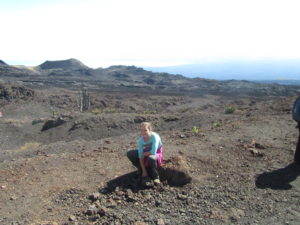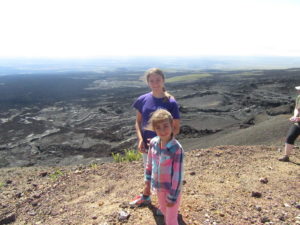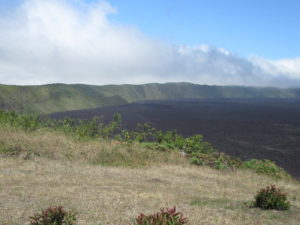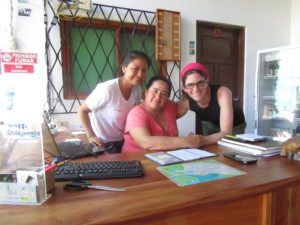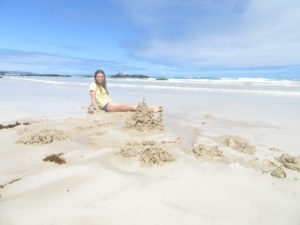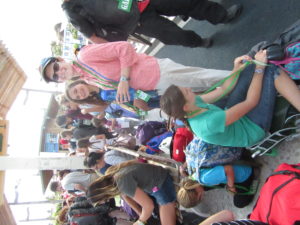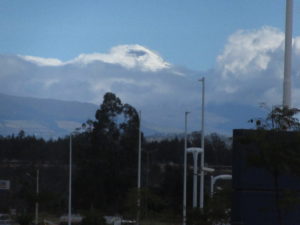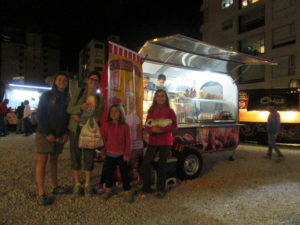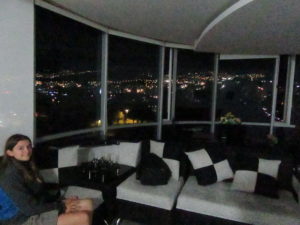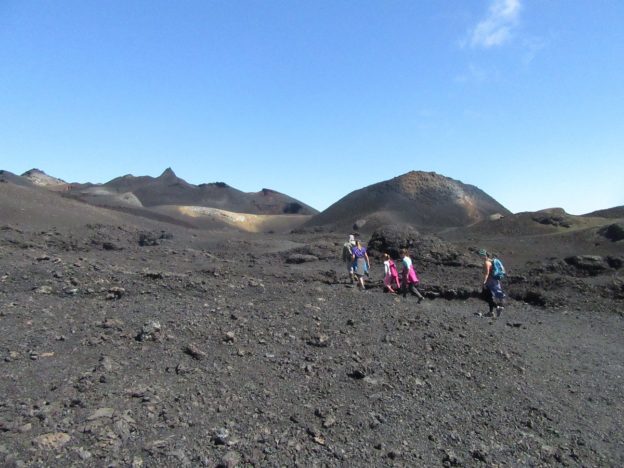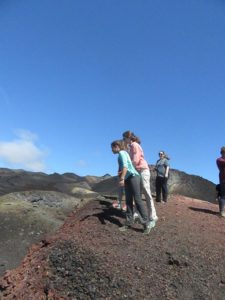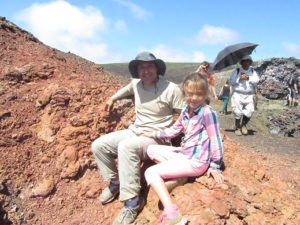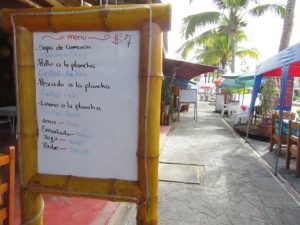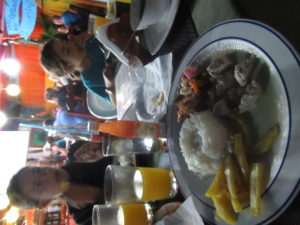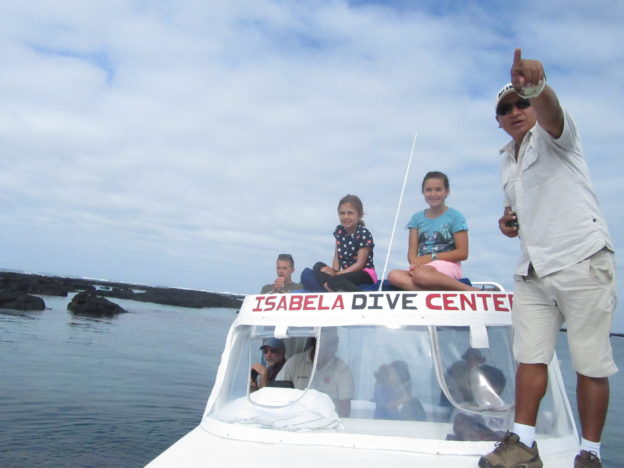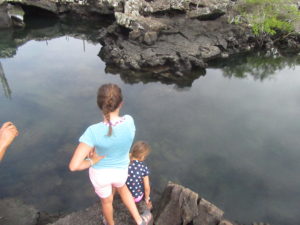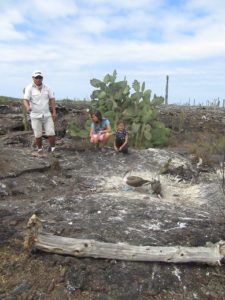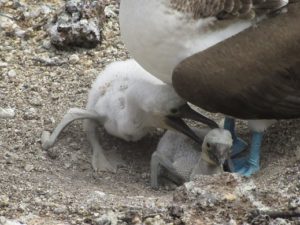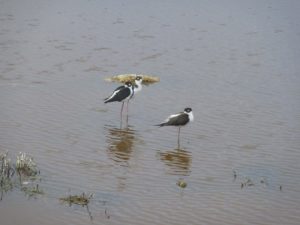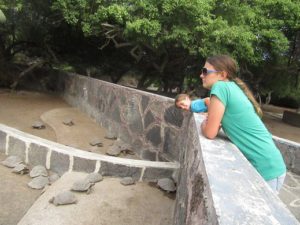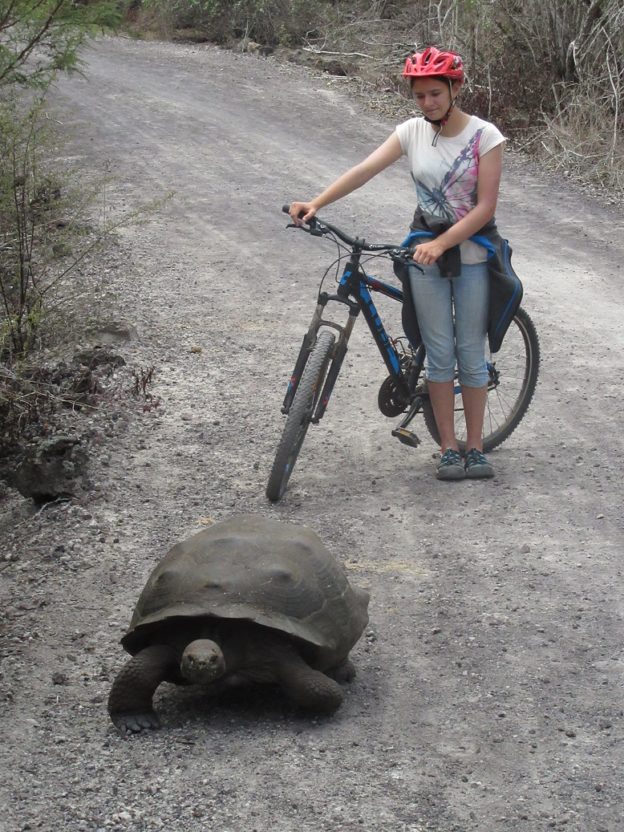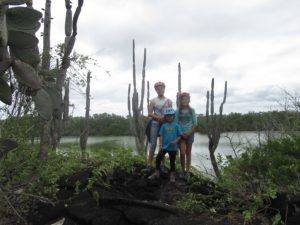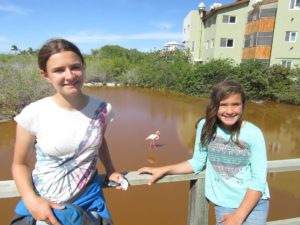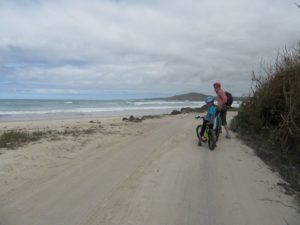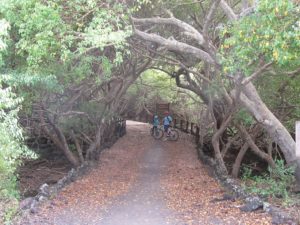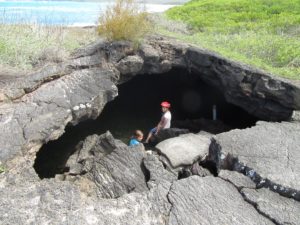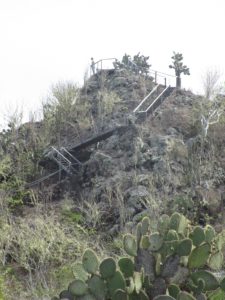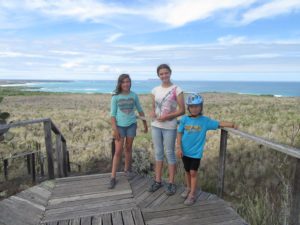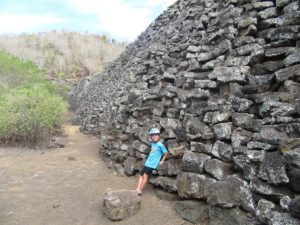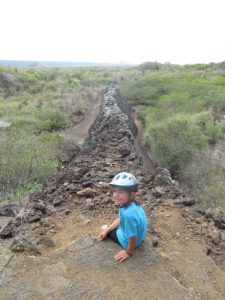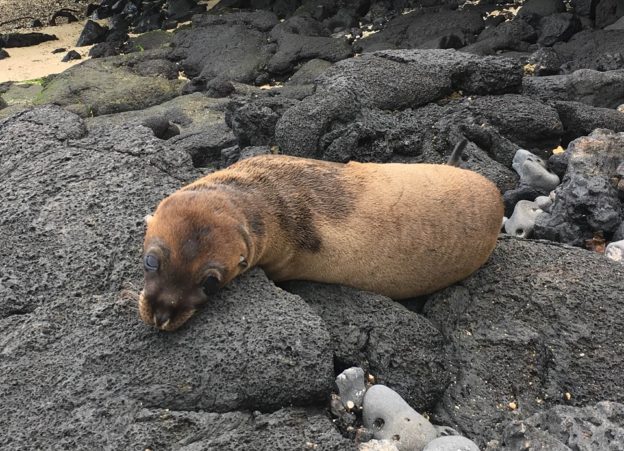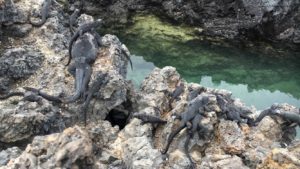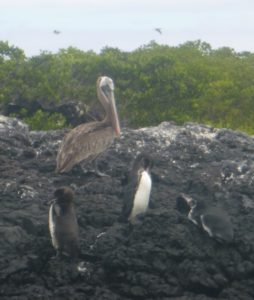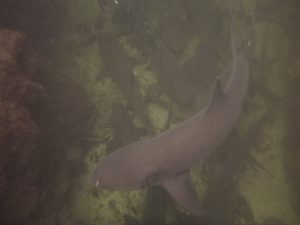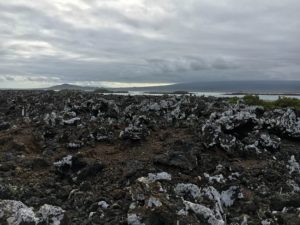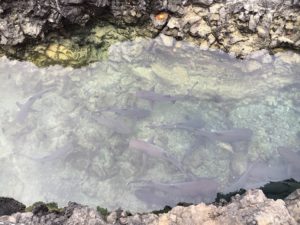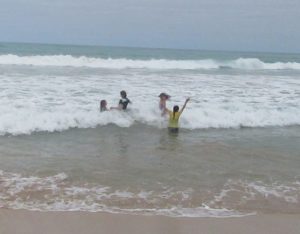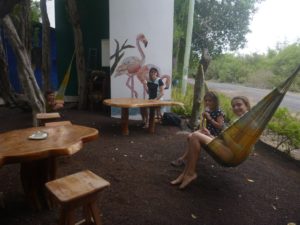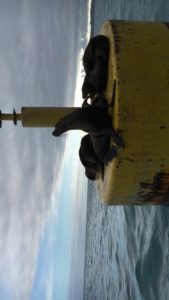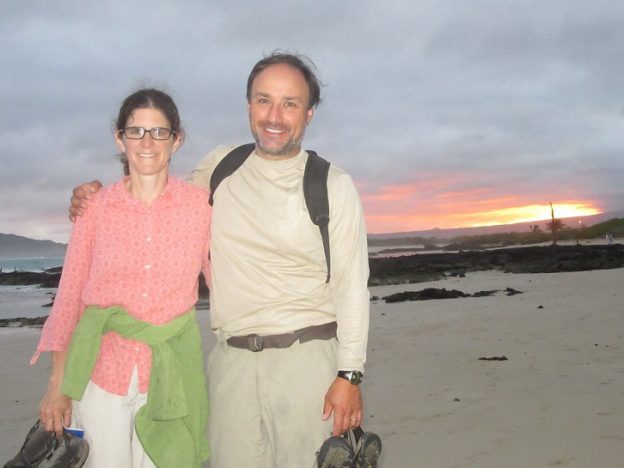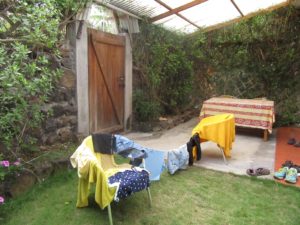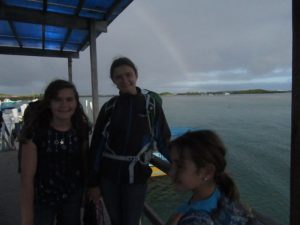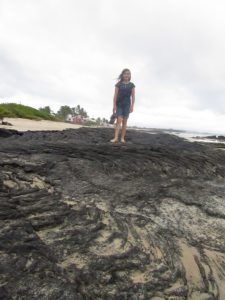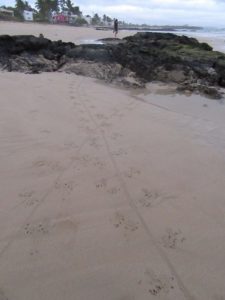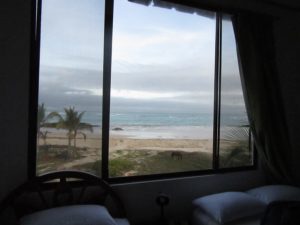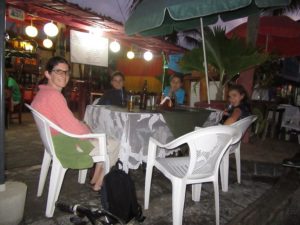Our last couple of days in Quito did not lack for excitement.
Things started out pretty low-key. On Sundays, one of the main avenues through the city — that passes by the park right outside our apartment — closes to traffic and is taken over by bikes. Our plan was to rent bikes then bike into the Old City (several kilometers away), which is also closed to cars.
Alas, we were foiled by Lanie’s diminutive stature. The first bike rental place we found didn’t have a small enough bike. They attempted to make a larger one fit by lowering the seat all the way, but this proved rather disastrous when Lanie took it for a trial run and, out of her depth trying to control it, immediately almost took out another biker. We quickly said our no, graciases and our lo sientos and bolted out of there. We thought there would be more options, so we walked…and walked…and walked…and didn’t find anything.
At this point, I should say that Zoe, usually our most intrepid hiker, was lagging further and further behind. Zoe is joining the high school cross-country team next year, and is expected to run 5-6 days a week all summer, traveling or no traveling. But our daily runs in Quito (elevation 9350 feet) had done a number on her.
Eventually we reached another park. It did, in fact, have many bikes for rent, but at this point we’d rather lost our appetite for it. So we contented ourselves with lounging around for a while, reading, people-watching, trying out various playground equipment (in Lanie’s case), and eating random food from the abundant food carts. The park was full of people enjoying
their weekend, with pickup soccer games and bike-riding families everywhere.
I should add a word about Quito’s parks. We’ve been so impressed with the amount that the city has clearly invested in becoming a healthy and livable place for its populace. The park by our apartment, Parque La Carolina, was huge and filled with attractions. Along with the usual paths, fields, and trees, there was an elaborate botanical garden and “serpentarium” (which Nadia refused to enter). There was a winding lake with islands, bridges, and paddleboats. There was a brand new one-kilometer synthetic track, the center of which was filled with athletic fields and courts as well as a set of metal non-electric exercise equipment. There were extensive networks of well-paved bike paths, as well as a bike terrain park and a huge skateboard park. There were any number of playgrounds, which brought delight to Lanie’s heart. (She was most excited about the attraction pictured below, which we thought would be a kind of trampoline but which in fact she landed in with a bit of a thud. Someone quickly appeared and told us it was
for ages 4 and under only, so she only got the one crack at it.) The paths were lined with carts selling about anything you could want — fresh fruit and ice cream and sausages and a pile of cotton candy almost bigger than Lanie. Everything was clean and well-maintained, and the locals made great use of it. I’ve never seen so many runners and bikers as I did on a weekend morning in Parque La Carolina.
Eventually we decided the
prudent course was a cab back to our park, and an afternoon relaxing there and in our apartment. We had dinner at the local pizzeria, and thought we’d have a nice calm movie night followed by an early bedtime.
We were watching National Treasure 2. If you are not familiar with this franchise, it is basically a PG-rated Da Vinci Code. The end was very exciting, with the characters trapped in a cave that was collapsing. Boulders were falling everywhere, water was pouring in, and crashes sounded from the television. Also, the whole building was shaking! Wait, why is the building shaking??
Bob and I quietly debated this for a bit. Our apartment was on the 10th floor. Was it possible that the effect was due to high winds? It seemed to stop for a bit, then started up again. When I noticed the picture frame on the wall rocking back and forth, I decided to check in with our landlord. Lo and behold, we had just experienced an earthquake.
On his advice, we went downstairs and out to the park to mill around with various other building and neighborhood residents, not quite sure what we were doing or how long we should do it for. Eventually, people started drifting in so we followed along. Not quite the restful night we had planned, but it certainly could have been worse.
